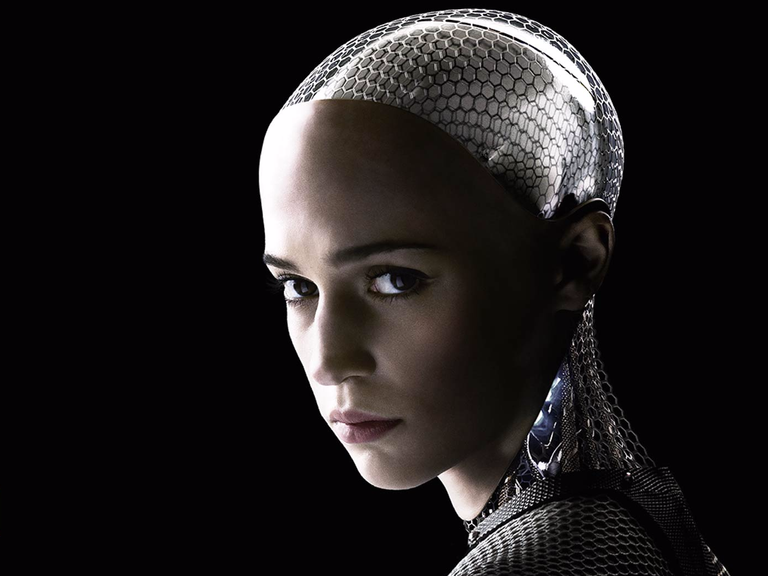
Artificial intelligence, or AI, is the field that studies the synthesis and analysis of computational agents that act intelligently. Let us examine each part of this definition.
An agent is something that acts in an environment – it does something. Agents include worms, dogs, thermostats, airplanes, robots, humans, companies, and countries. We are interested in what an agent does; that is, how it acts. We judge an agent by its actions. An agent acts intelligently when
• what it does is appropriate for its circumstances and its goals,
• it is flexible to changing environments and changing goals,
• it learns from experience, and
• it makes appropriate choices given its perceptual and computational limitations. An agent typically cannot observe the state of the world directly; it has only a finite memory and it does not have unlimited time to act.

A computational agent is an agent whose decisions about its actions can be explained in terms of computation. That is, the decision can be broken down into primitive operation that can be implemented in a physical device. This computation can take many forms. In humans this computation is carried out in“wetware”;in computers it is carried out in“hardware.”Although there are some agents that are arguably not computational, such as the wind and rain eroding a landscape, it is an open question whether all intelligent agents are computational. The central scientific goal of AI is to understand the principles that make intelligent behavior possible in natural or artificial systems. This is done by
• the analysis of natural and artificial agents;
• formulating and testing hypotheses about what it takes to construct intelligent agents; and
• designing,building,and experimenting with computational systems that perform tasks commonly viewed as requiring intelligence.
As part of science, researchers build empirical systems to test hypotheses or to explore the space of possibilities. These are quite distinct from applications that are built to be useful for an application domain.
Note that the definition is not for intelligent thought. We are only interested in thinking intelligently insofar as it leads to better performance. The role of thought is to affect action.
The central engineering goal of AI is the design and synthesis of useful, intelligent artifacts.We actually want to build agents that act intelligently.Such agents are useful in many applications.
Credits : Artificial Intelligence
Foundations of Computational Agents
David L. Poole University of British Columbia
Alan K. Mackworth University of British Columbia
Source: http://assets.cambridge.org/97805215/19007/excerpt/9780521519007_excerpt.htm
Not indicating that the content you copy/paste is not your original work could be seen as plagiarism.
Some tips to share content and add value:
Repeated plagiarized posts are considered spam. Spam is discouraged by the community, and may result in action from the cheetah bot.
Creative Commons: If you are posting content under a Creative Commons license, please attribute and link according to the specific license. If you are posting content under CC0 or Public Domain please consider noting that at the end of your post.
If you are actually the original author, please do reply to let us know!
Thank You!
An interesting point is what you write about learning from experience. In that regards AI is quite like a human being. One many ways I guess this is a good thing, but in other ways not so. I wrote a short blog post on AI in the justice system: https://steemit.com/ai/@protoken/if-you-feed-your-artificial-intelligence-racist-data-your-artificial-intelligence-will-become-a-racist
If we feed such an system damaged data, and yet out a lot of trust into it because it's supposed to be superior to human reasoning, we're in trouble.
If AI is consciousness, it will act, and it will act without taking sides. That is the nature of any consciousness in this world.
When we are conscious or aware we simply act on it without putting our judgment on it. so to my mind even an AI could do the same unless it is pre-programmed. But even a program is subjected to evolution regardless of us putting a boundary in the program.
Interesting. It is however a pity that your text is mostly copy-pasted from the online part of a book. Not citing his or her source is not fair and copy pasting is usually not rewarded on steemit (copyrights and all of that). It would have been better to write a piece of text on your own and give the above link, if you want my opinion. This is known to be rewarded better!
Thank you for your remark, I will keep that in mind. It is from a book which I was reading and I have updated the post as you have suggested. Most of the things what I have copy pasted are from scientific researches and i don't think it is ideal to add my opinion on that, but I from now onward I will make sure the credits links and details are correctly mentioned.
I am new to this platform and glad to know people are watching. Thank you so much for the lights, really appreciate it :)
I've got your marked on my curation list, so if your stuff is properly done in the future you may enjoy the rewards =D
(don't forget to credit the images, too)
Copy pasting is usually not rewarded at all (some people may even downvote you). I really recommend you to write your own text :)
Congratulations @sachgsach! You have completed some achievement on Steemit and have been rewarded with new badge(s) :
Click on any badge to view your own Board of Honor on SteemitBoard.
For more information about SteemitBoard, click here
If you no longer want to receive notifications, reply to this comment with the word
STOP